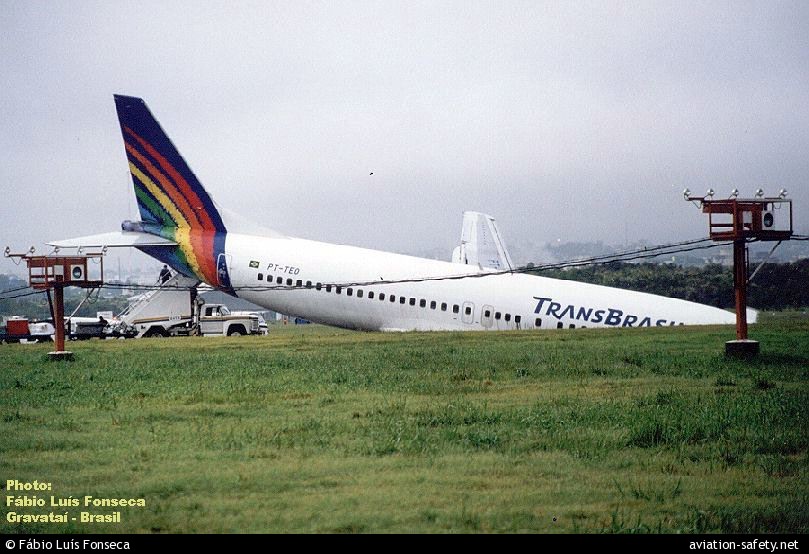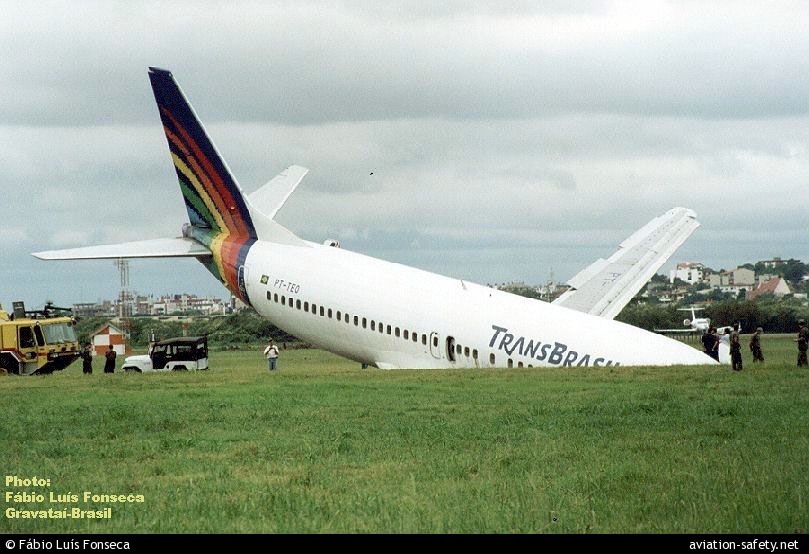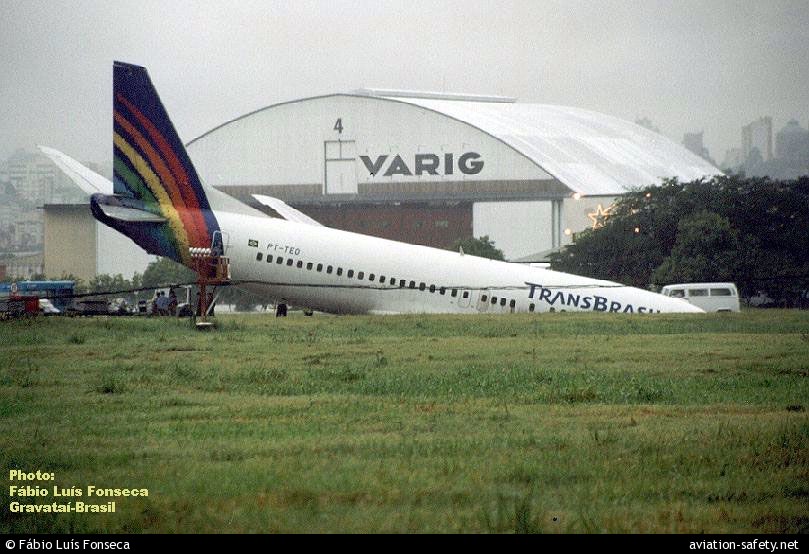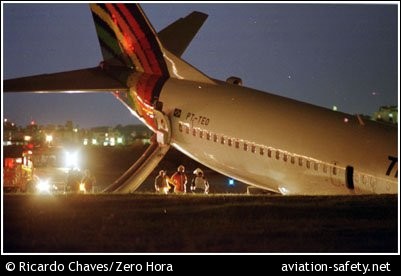
| Date: | Sunday 27 February 2000 |
| Time: | 20:21 |
| Type: |  Boeing 737-4Y0 |
| Owner/operator: | Transbrasil |
| Registration: | PT-TEO |
| MSN: | 24692/1963 |
| Year of manufacture: | 1990 |
| Total airframe hrs: | 32670 hours |
| Cycles: | 27913 flights |
| Engine model: | CFMI CFM56-3C1 |
| Fatalities: | Fatalities: 0 / Occupants: 117 |
| Aircraft damage: | Substantial, repaired |
| Category: | Accident |
| Location: | Porto Alegre-Salgado Filho Airport, RS (POA) -
 Brazil Brazil
|
| Phase: | Landing |
| Nature: | Passenger - Scheduled |
| Departure airport: | São Paulo-Guarulhos International Airport, SP (GRU/SBGR) |
| Porto Alegre-Salgado Filho International Airport, RS (POA/SBPA) | |
| Investigating agency: | CENIPA |
| Confidence Rating: |
The aircraft took off from Guarulhos International Airport bound for Porto Alegre, Brazil. On this flight, there would also be the final evaluation of the first officer, with a view to promotion to captain.
The flight took place normally, without any abnormalities until the moment of landing.
The weather conditions of the destination were poor with rain, strong wind with gusts and windshear indications in the vicinity of the airport.
The aircraft performed the NDB ECHO 2 approach for runway 29. During the landing, the aircraft floated over the runway, touching down approximately 1000 meters past the threshold. After the touchdown, the aircraft ran for about 1400 metres before it suffered a runway excursion and collided with a ditch. The aircraft suffered severe damage.
Contributing factors
a. Human Factor
(1) Physiological Aspect - Did Not Contribute
(2) Psychological Aspect - Contributed
From the knowledge of the prevailing weather conditions, it was possible for pilots to predict the possibility of "windshear" in the aerodrome area. In the meantime, they proceeded to land in compliance with the company's operational standards.
b. Material Factor - No contribution
c. Operational Factor
(1) Adverse Weather Conditions - Contributed
Adverse meteorological phenomena, with regard to the tailwind component, cross wind and heavy rain, substantially interfered with the operation of the aircraft in the landing phase, leading to abnormal circumstances and loss of ground control.
(2) Poor Infrastructure - Contributed
The meteorological information reported to the aircraft was being obtained from measuring points located in the control tower, and not in the vicinity of the runway.
Accident investigation:
 |
|
Sources:
Zero Hora
Location
Images:

photo (c) Fábio Luís Fonseca; Porto Alegre - Salgado Filho; 28 February 2000

photo (c) Fábio Luís Fonseca; Porto Alegre - Salgado Filho; 28 February 2000

photo (c) Fábio Luís Fonseca; Porto Alegre - Salgado Filho; 28 February 2000

photo (c) Ricardo Chaves/Zero Hora; Porto Alegre - Salgado Filho; 27 February 2000
Revision history:
| Date/time | Contributor | Updates |
|---|
The Aviation Safety Network is an exclusive service provided by:


 ©2024 Flight Safety Foundation
©2024 Flight Safety Foundation